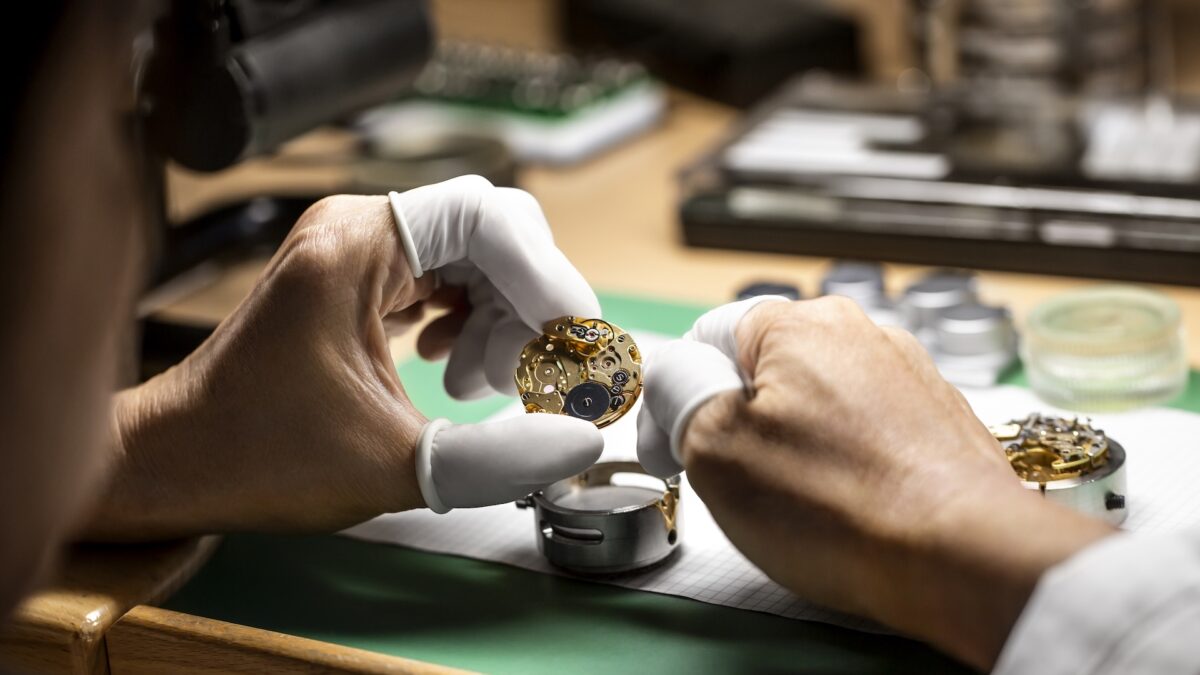TAG Heuer is synonymous with some of the most iconic moments in watchmaking, film and motorsport. We travelled to their factory and archive in Switzerland and sat down with their heritage director, Nicholas Biebuyck, to understand their rich heritage and how it shapes the future of the brand.
Visiting a high-end watch factory isn’t everyone’s idea of a good time, but we here at DMARGE love it. We live and breathe watches, so to have the chance to see where these things that we adore actually come from is a rare and unique experience.
Well, it can be. The reality is that not all watch factories are made equal, and there’s more to see at some than others. Once you’ve seen more than a few, the novelty wears off. You want to see something cool; something different.
Case in point: TAG Heuer’s manufacture in La Chaux-de-Fonds, Switzerland. The 163-year-old brand’s factory is impressive, for sure – both from a scale as well as an artisanal perspective – but what’s particularly impressive about it is how many workshops it has that are dedicated to the restoration and service of vintage watches… As well as its truly mental archive.
Simply put, TAG Heuer probably has one of the best heritage collections in all of watchmaking. The sheer number of unique and unusual references they had to show us was mind-boggling: from obscure chronographs and stopwatches tailored to individual sports – from hockey to football and yachting – to historically significant and rare pieces that are proper grails. They’ve also got other goodies in the vault, like Steve McQueen’s race suit from Le Mans…
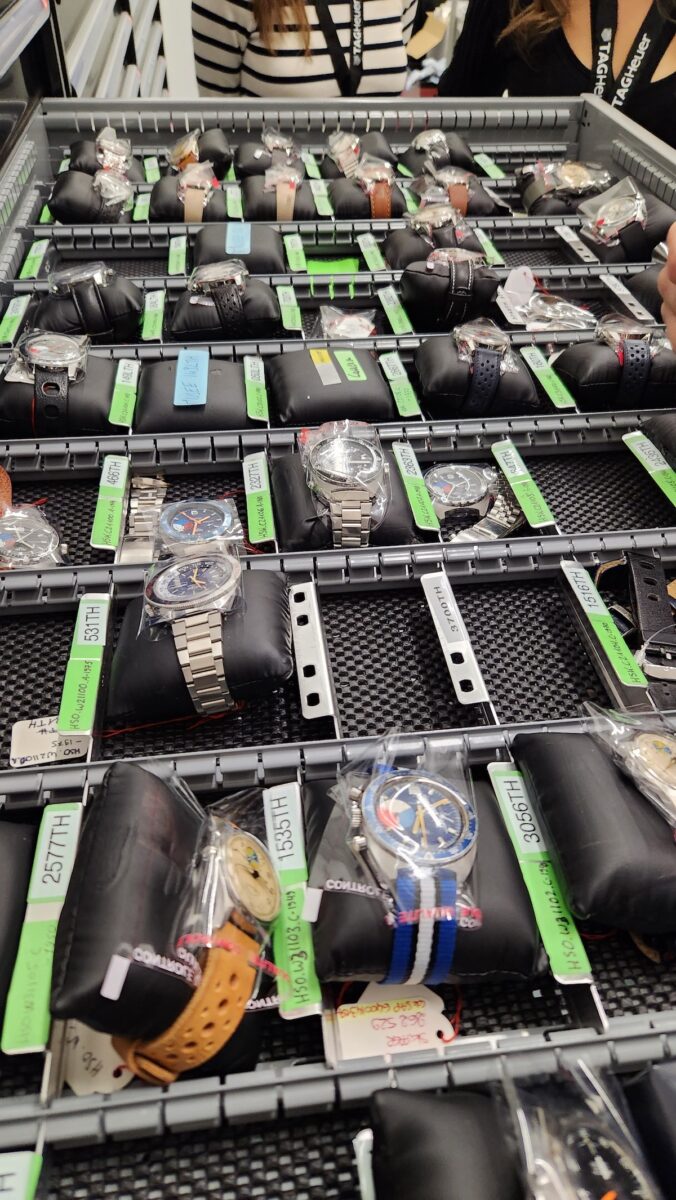
Much of the breadth and quality of TAG’s archive is thanks to one man: Nicholas Biebuyck, TAG Heuer’s heritage director. Since he started the role in 2021, Nick has personally collected over 1,000 different Heuer and TAG Heuer references for the collection. He also stands out as one of the most knowledgeable, passionate and interesting figures in modern horology.
He’s also a bit of a maverick – which suits TAG Heuer, which has always been an avant-garde brand. Unlike most heritage directors at high-end watch brands, Biebuyck isn’t afraid to wear some of these rare vintage pieces out and about – indeed, he makes a point of it.
When I sat down with him at Watches & Wonders Geneva 2023, he was wearing an original Carrera ref. 2447, and had a veritable treasure trove of rare vintage pieces to show me. For Nick, giving journalists and watch fans the chance to handle these sorts of rare watches is crucial.
“I think other archivists within the watch industry kind of bristle at me doing this, but my view is that, at the end of the day, these watches are meant to be worn. Of course, we have stuff that’s new old stock that I don’t wear out and about – but there’s other stuff,” he explained with a grin, letting me try on a yellow gold Heuer Carrera ref. 1158 CHN from the 70s.
“A lot of [these watches] have already lived a very serious life. So for me, it’s the best way to share to prove that these watches can still be worn. There’s no major impact from doing this. Of course, I’m extremely careful when I’m wearing them – but for me, it’s important to be able to share the watches rather than you know, locking them in a drawer to gather dust. They have to be out there in the world.”
Nicholas Biebuyck
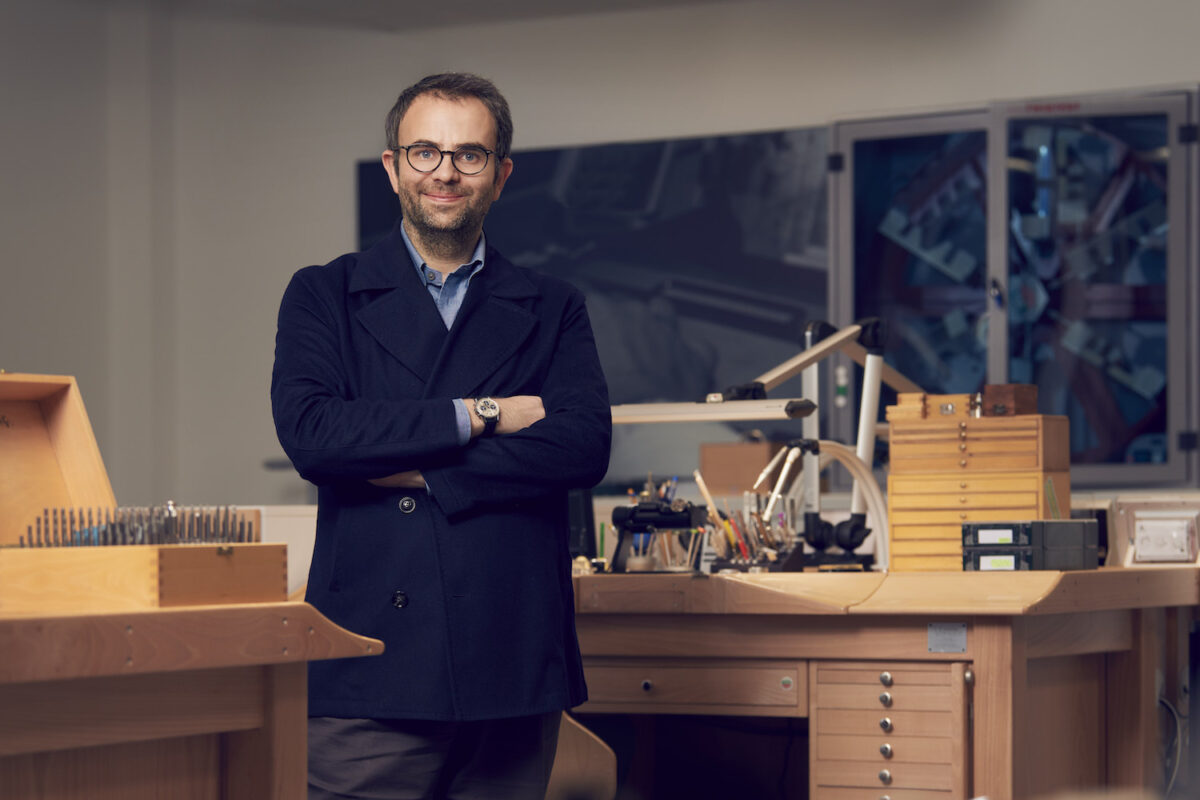
You might be asking, what does the day-to-day of a ‘heritage director’ look like?
“My pure heritage director component is really the preservation of the archive and the kind of sharing of it, so often I’m curating exhibitions, doing a lot of spokesperson stuff, telling these stories, sharing them, working with the communications team to work on the stories that were we telling and adding that kind of authentic element,” Nick explains.
“Beyond that, it’s kind of more broad support and briefings around the history of the Maison or what we can learn from the past to kind of guide us into the future. I don’t have any specific involvement in product development, which is quite fortuitous, because otherwise, I’d be busier than I currently am,” he jokes.
“But yeah, I mean, it’s really preserving the history that we have, and doing everything I can share it with as many people as possible and you know, engage the community, try and support with things like restorations, acquisitions – it’s a big part.”
Nicholas Biebuyck
Indeed, Nick’s deeply involved with the watch community in a way that probably few other senior employees at any luxury watch brand are. Whether it’s educating consumers or working with die-hard Heuer fans with their collecting – or, vice versa, getting tip-offs for pieces that TAG might want for their collection – Nick’s position is an interesting mix of curator, educator and hunter.
RELATED: TAG Heuer CEO Frédéric Arnault On Why Young People Are The Future Of Watches
I was curious to find out how Nick does find pieces for TAG Heuer’s heritage collection. “I’m extremely lucky that because I’ve been collecting for nearly 20 years and I’ve been very closely involved with the whole community for quite a long time,” Nick says.
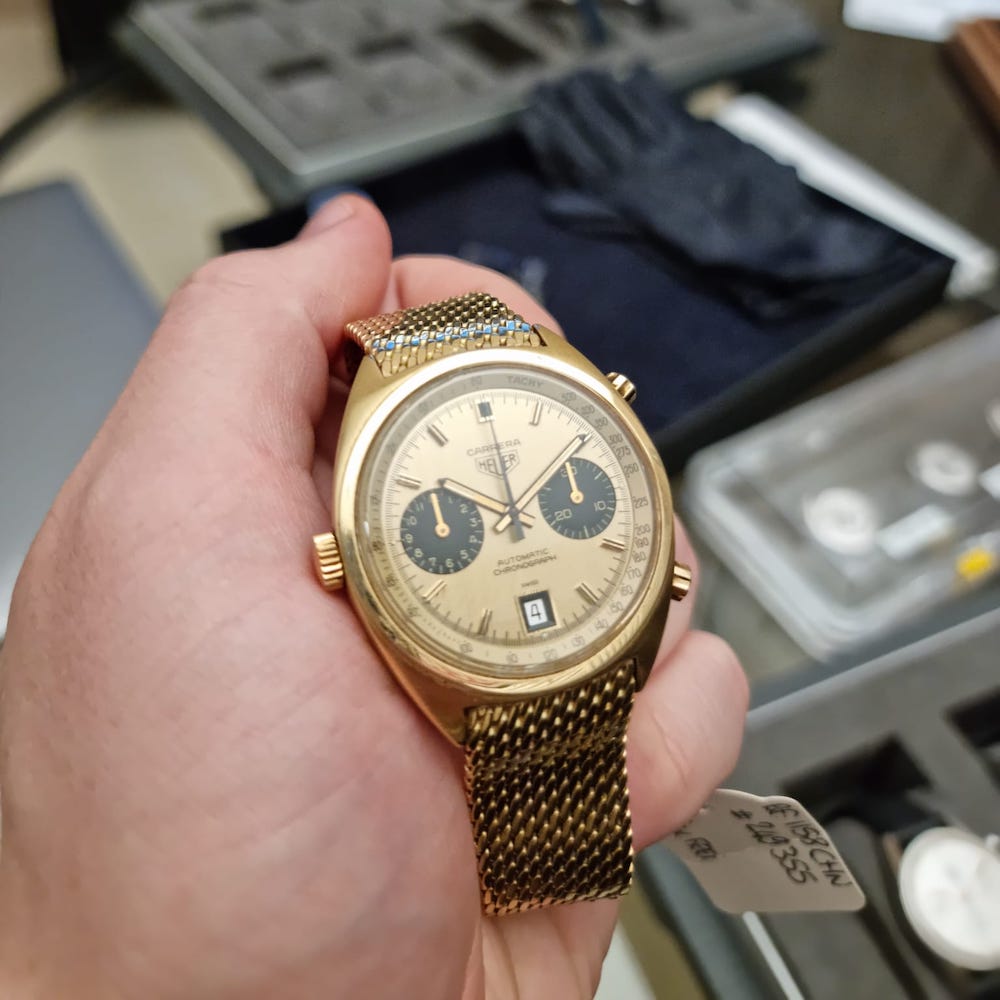
“I get a lot of inbound stuff. You know, nearly every morning I wake up to an Instagram message or a WhatsApp saying ‘Have you seen this? It’s up for sale with so and so.’ Or, you know, the auction houses running stuff by me.” (Before he joined TAG Heuer, Nick was a senior specialist at Bonhams and Christie’s.)
“It’s quite straightforward because then I’m often just making a quick decision around, is the right price for us to pay, do we really need this reference, is it an improvement on the condition of what we already have, which is a big part of the equation when really searching for the best of the best examples.”
“I don’t buy anything for myself at all,” he’s quick to point out. “One of the clear decisions I made when I joined the brand was that I would not buy any vintage watches for myself, especially if they were coming in due to the fact that I am here as the heritage director… But the big thing is that ownership is such a small part of the experience,” Nick muses.
RELATED: 5 Biggest Trends In Watches For 2023
“I was very lucky when I was working for auction houses; when I was managing these collections, you get to handle the best of the best of the best of the best. It’s great, but it’s such a double-edged sword because yeah, you can source this multimillion-dollar Patek, but then you can’t really wear the thing. Insurance is kind of a hassle. You got to pay for it above other stuff.”
“Actually, the academic research, the negotiation, the assessment of the asset, all of those components are as enjoyable if not more enjoyable than the day you pay the money and you get the watch,” Nick explains.
“It’s not just the thrill of the chase for me, but it’s also the kind of education experience, you’re always learning about something that you would have not necessarily had exposure to otherwise. So yeah, I mean, obviously it’s nice to have shiny things, but it’s not the only part of the experience.”
Nicholas Biebuyck
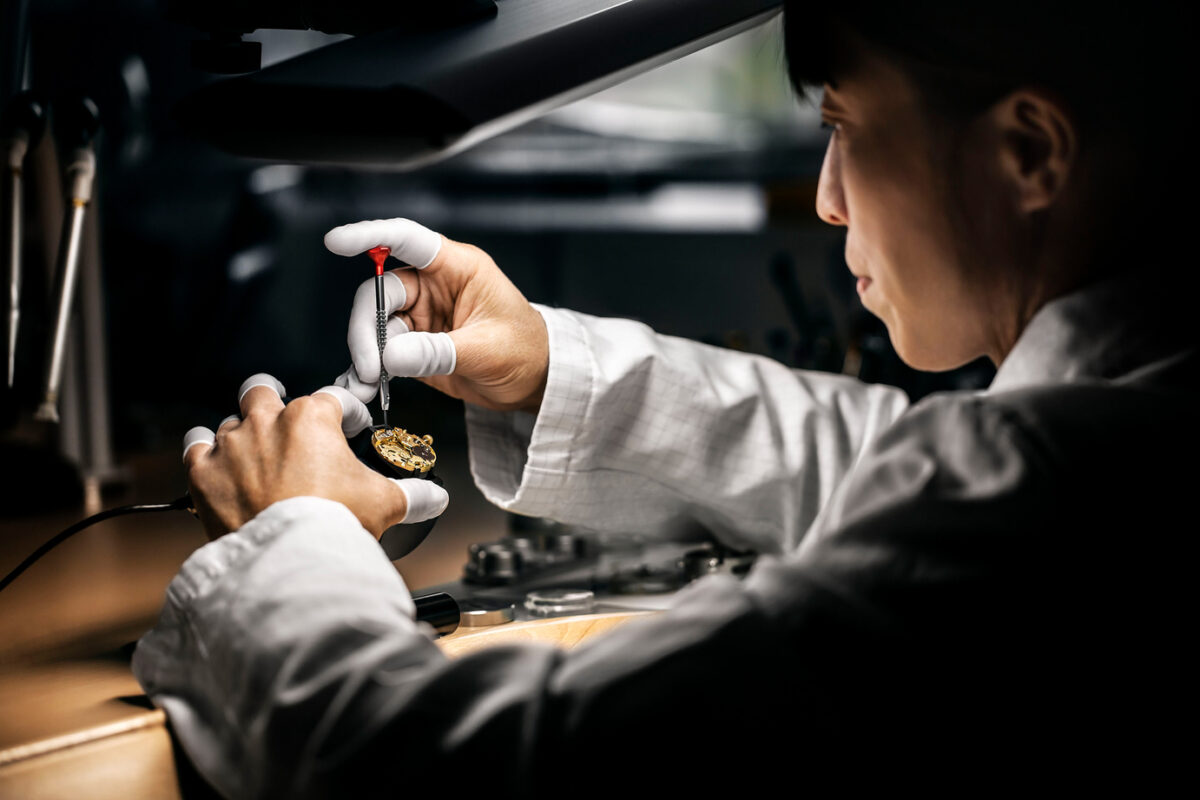
Indeed, one of the reasons Nick loves being at TAG Heuer so much is that while there are certainly some extremely rare Heuers and TAG Heuers out in the wild that command pretty punchy premiums, the brand doesn’t see the same sort of rampant speculation or price gouging that surrounds other brands – meaning their watches can be appreciated on their own merits rather than just being an alternative asset class.
“They’re expensive watches, but there’s not so much money involved… We have avoided the kind of speculative issues that have affected Rolex, for example,” Nick explains.
“Honestly we’re very, very lucky. We’re a brand to have been well insulated from this for a whole host of reasons. Okay, there are a few exceptions to the rule – a few of the limited editions we’ve offered are trading above retail, there’s a waitlist for black Monacos – but this is a very, very small percentage of the portfolio.”
“Otherwise, I love to see the fact that we are an egalitarian brand. You can walk into a retailer, pay your money and walk out with a watch. This is a rare situation in the [current] marketplace.”
Nicholas Biebuyck
“Or, you know, worst case scenario, you’re going to wait a few weeks – I mean, these new 39mm Carrera Glassboxes? I think there’ll be a bit of a bun flight and there’s going to be some places where you’re going to wait six, nine, twelve months for the pieces to come through… But predominantly, it’s not really an issue.”
WATCH Ryan Gosling steal the new TAG Heuer Carrera Chronograph Glassbox in the hilarious short film, The Chase For Carrera, below.
On that: Nick has a sage perspective regarding the current shift in watch culture towards watches being an alternative asset class and the spectre of speculation:
“I think it’s only a problem that’s emerged in the past three to five years, right? I used to have friends buying [Patek Philippe Nautilus] 3711s out of shop windows because no one was buying them. You could get a Daytona within three months, no problem. There were no real issues in 2014, 2015, 2016…”
“Obviously, between COVID and crypto mania, there was so much loose cash sloshing around. People couldn’t spend on other stuff like travel, you didn’t need to buy nice clothes anymore before going into the office… All of these things created this kind of perfect storm where there was so much money flying into the watch market, that it suddenly became almost exclusively about that and people saw many pieces as a hedge against the broader macroeconomic environment.”
Nick’s no stranger to selling watches for massive sums, but he bemoans the excessive commercialisation and speculation surrounding luxury watches that we’ve seen in recent years.
“When you’re handling almost like a security, it takes all the fun out of an object that’s meant to be worn and loved. Maybe it’s a lump of metal that’s completely superfluous to our day-to-day existence today, but we love these things. And when you’re dealing in such an emotional object, it can’t just be about money.”
Nicholas Biebuyck
“But that’s what happened. Many, many new collectors they came in and just wanted to talk about the dollar,” he says.
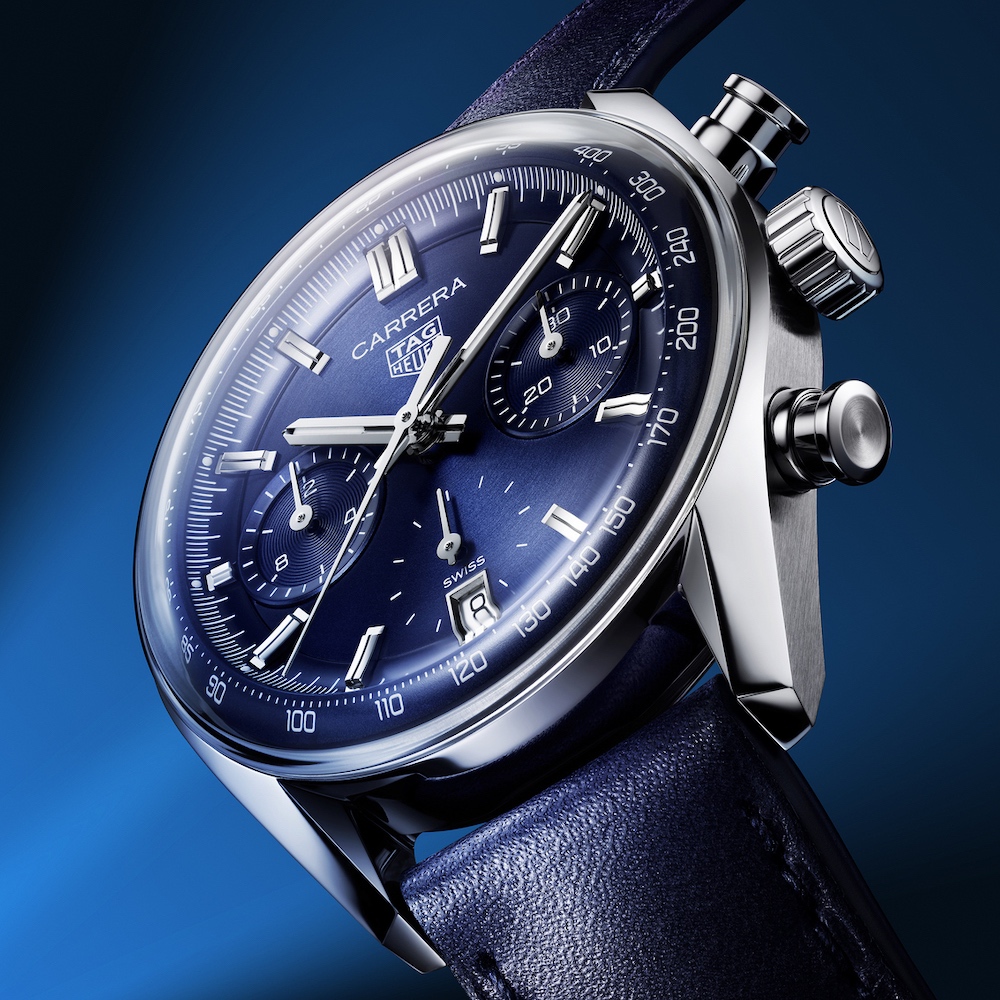
It might seem gauche to talk about the state of the watch market, but TAG Heuer’s place within the market is part of the reason why Nick joined TAG Heuer.
“The funny thing is, I always said I’ve never join a brand – I couldn’t bear the idea of only being able to wear one make of watch,” Nick admits. “But when you see a company that’s down here that should be up here” – Nick gestures – “and you feel that you can contribute in some capacity, you feel obligated to try it.”
“It’s important to remember that Heuer was a Rolex competitor in the 1960s. Obviously, that’s not the case today. The question is how do we get there, how long will it take, what is the strategy to achieve that and is there anything I can do to contribute to that? That’s really the motivation.”
Nicholas Biebuyck
“The great thing about TAG Heuer as a brand today is we’re so diverse. Yes, we’re entry-level with watches like the Formula One, but we’re also high-end. Yes, we have huge amounts of history, but we’re also avant-garde… It’s a question of how we balance these four quadrants to create something that really distinguishes us as a brand.”
“And, you know, not just for next year’s Watches & Wonders, but for the next decade, the next 20 years, the next 50 years because honestly, that’s the timelines that we need to be thinking of as a brand,” Nick elaborates.
Speaking with Nick, it’s clear how much passion he has for TAG Heuer – indeed, how passionate the entire team at TAG Heuer is. It’s a brand on a mission, and that’s exciting.
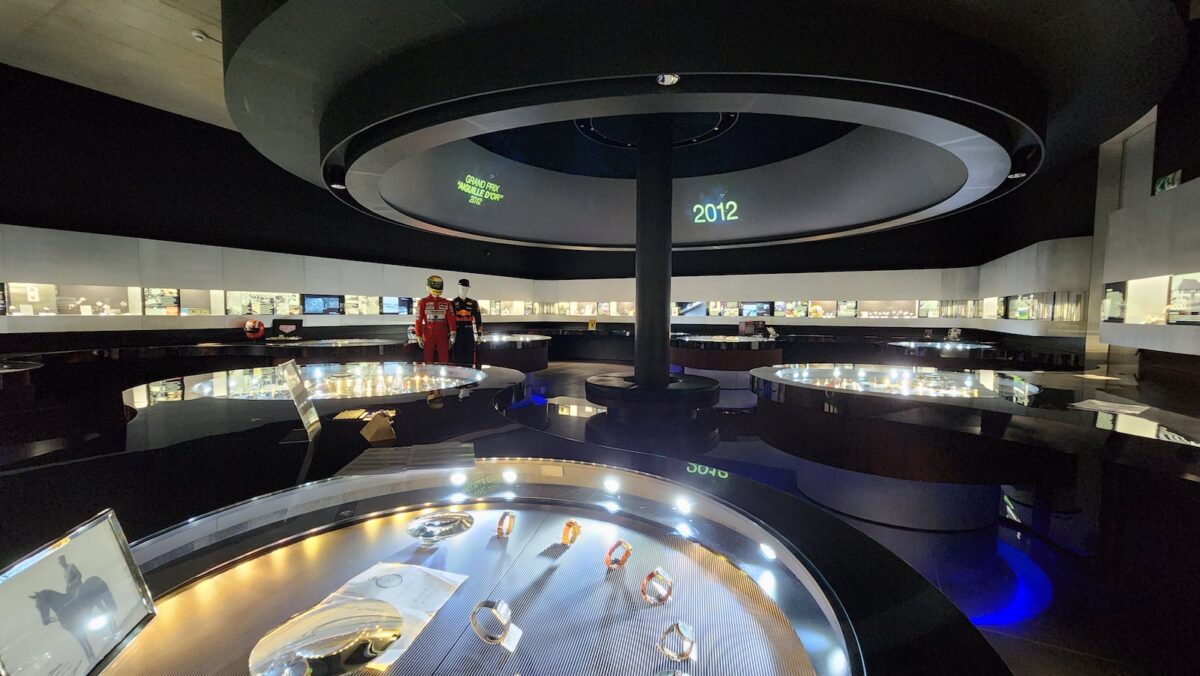
Many luxury watch brands struggle to reconcile history with innovation. Many brands feel constrained by their past – or, alternatively, are so focused on being cutting-edge that they forsake their own legacy. Those who cannot remember the past are condemned to repeat it – for better or for worse.
TAG Heuer, however, seems to have found the perfect balance: they respect their past, but they’re not afraid to look to their future.
TAG and Nick must be applauded for their efforts to preserve Heuer and TAG Heuer’s history, as well as their dedication to sharing that history with the public and enthusiasts. But it’s not an empty or self-indulgent exercise: preserving and learning from their heritage is what keeps them ahead of the pack.
We just wonder what the next 160 years has in store…
